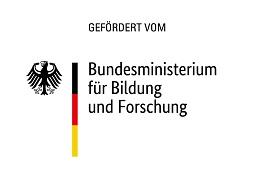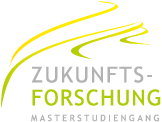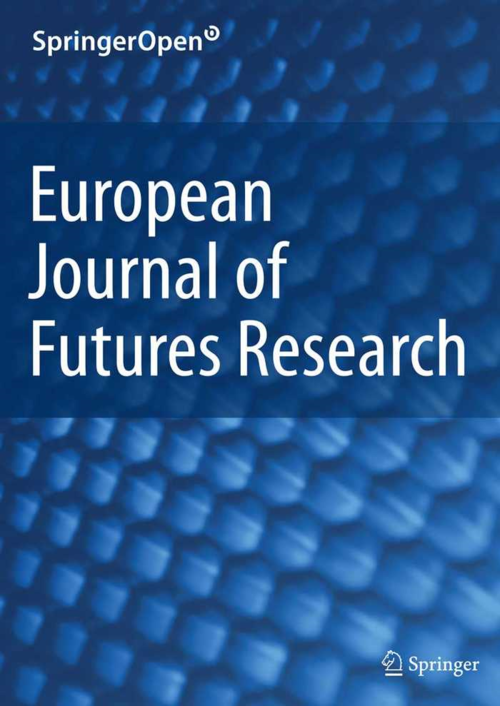ESD for 2030 (2023-2026) - English
Project lead: Prof. Dr. Gerhard de Haan
Project coordination: Dr. Antje Brock
Monitoring team:
Dr. Antje Brock, Julius Grund, Jorrit Holst, Ann-Kathrin Schlieszus, Marcus Schneider, Christoph Schönherr, Dr. Sarah Widany
Duration: 2023-2026
Office of the Scientific Advisor to the UNESCO program “ESD for 2030”
The National Monitoring on "Education for Sustainable Development" (ESD) at the Institut Futur of the Freie Universität Berlin examines the extent to which education enables people to face the challenge of sustainable development and to contribute to a more sustainable world. In this context, the empowerment of each member of society is of interest – in line with lifelong learning, starting with early childhood and school education through higher education and vocational training all the way to educational and learning activities in adulthood. To this end, the national ESD monitoring programme uses a wide range of methods to investigate a variety of questions. These include, among others:
- the incorporation of ESD in key documents of the German education system
- the assessment by experts of future skills required with regard to sustainability
- the organisational transformation of educational institutions in the context of a whole institution approach
- the landscape of non-formal education providers
- knowledge about sustainable development, attitudes and emotions, as well as competences for action.

Monitoring is crucial for the institutionalisation of ESD
Linking sustainability with a wide range of individual and social learning processes and giving everyone access to these learning opportunities is a major task. A lot depends on its success: ESD is a key to empowering people to think and act sustainably. Since 2015, we have, within ESD monitoring, been analysing how well ESD is already established and where more effort is needed. This makes it possible to plan and implement measures to strengthen ESD in a more systematic way.
Areas of education from early childhood to adult education
Over the course of their lives, people come into contact with many different educational institutions: from early childhood education to school and vocational training and/or university. Many people also learn outside such institutions, for example in educational programmes offered by non-profit organisations or by passing on knowledge among family and friends and via mainstream and/or social media. The monitoring looks at all these areas of education.
Three central levels of analysis: Input, processes, outcome
ESD should enable people and organisations to think and act sustainably. The national monitoring analyses how well this is achieved at three different levels:
- Input: Here the monitoring analyses the extent to which ESD is anchored in the specifications and framework conditions of the education system. This includes analysing laws, curricula, exams and other documents, for example.
- Processes: At this level, the focus is on concrete implementation: in which areas and in what way is ESD already established in formal and non-formal educational organisations, where is action needed?
- Outcome: Here we look at how well the population is already able to act sustainably. This includes not only individual behaviour, but also the extent to which the relevant structures can be changed.
Which approach do we take?
In order to do justice to the very different areas of education and levels of analysis, we employ a wide range of methods. This includes the analysis of documents — more than 11,000 to date — as well as quantitative and qualitative studies. Examples are a representative population survey, mixed-method surveys at educational institutions, a Delphi study with decision-makers and a survey of stakeholders in the non-formal and informal education sectors.
These diverse methodological approaches are used to analyse both the framework conditions and the concrete implementation of ESD. The actual empowerment for sustainability, for example the knowledge and attitudes of the stakeholders towards ESD, are also taken into account. Ultimately, sustainability in education can only be truly realised if all those involved in the educational processes are committed to it.
Advice for policy-makers and educational practitioners
As the Office of the Scientific Advisor to the UNESCO program ESD for 2030 (Prof. Dr. Gerhard de Haan), the globally unique and independent monitoring unit operates at the interface between science and education policy. In addition to research, the eight-member monitoring team also advises stakeholders from politics and education practice on how ESD can be better anchored and implemented. In this way, the results of the research inform future policy and practice.

Recent publications:
-
Holst, J., Grund, J., & Brock, A. (2024). Whole Institution Approach: Measurable and highly effective in empowering learners and educators for sustainability. Sustainability Science. Advance online publication. https://doi.org/10.1007/s11625-024-01506-5
-
Holst, J., Singer‐Brodowski, M., Brock, A., & Haan, G. de (2024). Monitoring SDG 4.7: Assessing Education for Sustainable Development in policies, curricula, training of educators and student assessment (input‐indicator). Sustainable Development, 1–16. https://doi.org/10.1002/sd.2865
-
Grund, J., & Holst, J. (2023). Emotional competence: The missing piece in school curricula? A systematic analysis in the German education system. International Journal of Educational Research Open, 4, 100238. https://doi.org/10.1016/j.ijedro.2023.100238
- Holst, J. (2023). Towards Coherence on Sustainability in Education: a Systematic Review of Whole Institution Approaches. Sustainability Science, 1-16.
- von Seggern, J., & Singer-Brodowski, M. (2020). Why Context Matters for Educational Policy – Analysing Interactive Practice in the Governance of Education for Sustainable Development in Germany. Zeitschrift für internationale Bildungsforschung und Entwicklungspädagogik 4(20), 25–29.
- Holst, J., Brock, A., Singer-Brodowski, M., & de Haan, G. (2020). Monitoring Progress of Change: Implementation of Education for Sustainable Development (ESD) within Documents of the German Education System. Sustainability, 12(10), 4306.
- Grund, J., & Brock, A. (2020). Education for Sustainable Development in Germany: Not Just Desired but Also Effective for Transformative Action. Sustainability, 12(7), 2838.
- Singer-Brodowski, M., von Seggern, J., Duveneck, A., & Etzkorn, N. (2020). Moving (Reflexively within) Structures. The Governance of Education for Sustainable Development in Germany. Sustainability, 12(7), 2778.
- Singer-Brodowski, M., Brock, A., Grund, J., & de Haan, G. (2020). Reflections on the science-policy interface within education for sustainable development in Germany. Enviromental Education Research, Ahead-of-print, 1-17.
- Grund, J., & Brock, A. (2019). Why We Should Empty Pandora’s Box to Create a Sustainable Future: Hope, Sustainability and Its Implications for Education. Sustainability 11(3), 893.
- Singer-Brodowski, M., Etzkorn, N., & von Seggern, J. (2019). One Transformation Path Does Not Fit All-Insights into the Diffusion Processes of Education for Sustainable Development in Different Educational Areas in Germany. Sustainability 11(1), 269.



